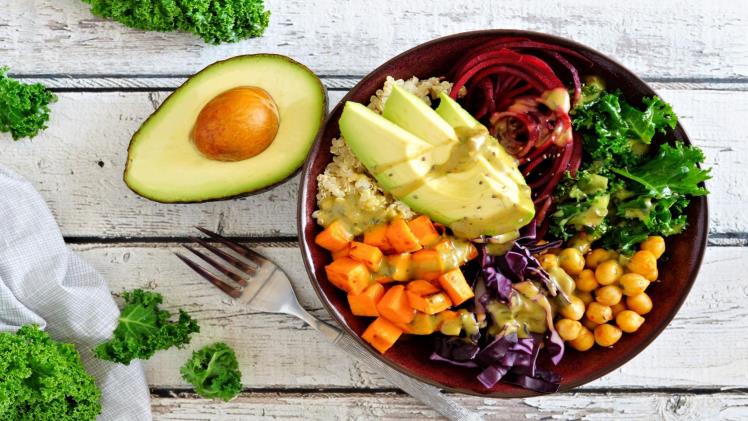How to Eat a Healthy Diet

Eating a nutritious diet requires getting the right combination of foods in the appropriate amounts and timing. Eating nutritiously is essential for good health as it helps protect against many diseases. Your meal plan should incorporate items from each food group and provide you with essential nutrients while helping maintain your weight.
Eat a variety of vegetables and fruit at each meal. Opt for colorful fresh or frozen veggies as they are packed with vitamins, minerals, and antioxidants. To add flavor to your dishes, try adding whole grains like brown rice, quinoa or oatmeal as well as spices and herbs.
Reduce your fat consumption. Limit saturated fats (the kind found in animal products and dairy) as much as possible and switch to unsaturated oils like olive oil, canola oil or palm oil. Saturated fat increases cholesterol levels and is linked with heart disease.
Reduce your consumption of sugar-sweetened drinks like sodas and juices, which contain many calories and added sugar. Instead, switch to water as this can help lower blood pressure and improve cholesterol levels.
Cooking your own meals as often as possible is an excellent way to cut back on sodium and preservatives found in pre-made foods, while giving you more control over what goes into each dish.
Make sure your diet is balanced, with enough carbohydrates, proteins and fats. This will make meals more satisfying and give you a feeling of fullness after each serving.
By visiting mywikistory and ecommerc you can get more knowledge about multiple topics.
Start slowly and gradually introduce changes to your diet plan. Doing this will help you sustain the new eating style and make it simpler to stick with it long term.
Experiment with different vegetables and fruit at each meal, exploring their flavors, colors, and textures. Vegetables are an excellent source of fiber, vitamin C, iron and sweet vegetables like carrots or sweet potatoes that are low in calories which may help curb cravings for other snacks.
Consider beans and legumes as a protein source. They provide essential vitamins such as iron, folate, calcium, and potassium. Soy products like tofu or soy milk are also nutritious choices, along with nuts and seeds.
When eating meat, opt for lean cuts. Eating lean meat has been linked to improved cardiovascular and digestive health, lower blood pressure levels, and a decreased risk of certain cancers.
Switch out red meat for other protein sources like fish, eggs and nuts. Vegetarians should incorporate beans, peas and lentils into their meals on a regular basis as well.
Increase your intake of vegetables and fruits, while decreasing processed food consumption. This is one of the easiest ways to improve your overall health.
Make yourself more active at home by finding activities you enjoy. This could include walking, gardening, cleaning or participating in a sport.
Eliminate smoking, which can be highly hazardous to your health and be a major contributing factor in developing lung cancer.
